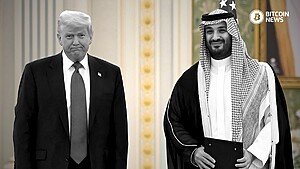Javier Milei, is an Argentine economist, author, and politician known for his libertarian views and his advocacy for free-market principles.
Javier Milei’s Bitcoin alignment is not just ideological but also practical, as Argentina faces severe economic challenges, including rampant inflation and currency devaluation.
This article explores why Milei might consider adopting Bitcoin as legal tender in Argentina, drawing parallels to El Salvador’s pioneering move in 2021.
Bitcoin was created in 2009 by an anonymous entity known as Satoshi Nakamoto.
It is a decentralized digital currency that operates on a peer-to-peer network, eliminating the need for intermediaries like banks. Bitcoin’s fixed supply of 21 million coins makes it inherently deflationary, which stands in stark contrast to fiat currencies that can be printed at will by central banks.
For Milei, an advocate of sound money principles, Bitcoin represents an antidote to inflationary pressures that have plagued Argentina for decades. By adopting Bitcoin, Argentina could potentially stabilize its economy, provide a hedge against hyperinflation, and attract global investments.
Lessons from El Salvador
El Salvador made history in September 2021 by becoming the first country to adopt Bitcoin as legal tender.
President Nayib Bukele’s administration aimed to promote financial inclusion, reduce remittance costs, and spur economic growth through this bold move. Despite facing criticism and skepticism, El Salvador’s experiment with Bitcoin offers several valuable insights for Argentina.
- Financial Inclusion: Like El Salvador, Argentina has a significant unbanked population.
Bitcoin can provide a viable alternative to traditional banking, allowing people to access financial services through their smartphones. This could empower millions of Argentinians who are currently excluded from the formal financial system. - Remittances: Argentina, with its large diaspora, receives substantial remittances from abroad. Using Bitcoin for remittances can reduce transaction fees and speed up the transfer process, ensuring that more money reaches families in need without being eroded by intermediaries.
- Investment Attraction: By adopting Bitcoin, El Salvador positioned itself as a forward-thinking nation, attracting entrepreneurs and investors. Argentina could similarly benefit by fostering a Bitcoin-friendly environment.
The Case for Bitcoin as Legal Tender in Argentina
All these benefits prove that there’s a valid case for bitcoin as legal tender in Argentina.
- Economic Stability: Argentina’s history of hyperinflation and currency crises has eroded trust in the peso. Bitcoin’s deflationary nature could provide a more stable store of value and medium of exchange, restoring confidence in the monetary system.
- Decentralization and Sovereignty: Adopting Bitcoin aligns with Milei’s libertarian values, promoting decentralization and reducing the state’s control over money. This move could enhance individual sovereignty, giving Argentinians more control over their financial futures.
- Technological Advancement: Embracing Bitcoin would position Argentina at the forefront of financial innovation. It could drive technological development, foster entrepreneurship, and create a competitive advantage in the global economy.
- Global Integration: Bitcoin is a global currency, accepted and traded worldwide. By adopting it, Argentina could facilitate international trade and investment, integrating more seamlessly into the global economy.
Javier Milei Bitcoin Long Strategy
Milei emphasizes the need to cut government spending significantly to reduce the fiscal deficit. This would involve austerity measures and potentially unpopular cuts to public sector jobs and subsidies.
He advocates for eliminating excessive regulations that stifle entrepreneurship and business expansion. This includes simplifying bureaucratic procedures and reducing red tape. Introducing more flexible labor laws to make hiring and firing easier is also part of his plan.
Encouraging investment through strengthening property rights and creating a more attractive environment for foreign investors is essential. Once these foundational economic issues are addressed, Milei’s strategy could open the door for Bitcoin to be considered as legal tender.
A stable economic environment with controlled inflation and a predictable fiscal policy would reduce the volatility that scares away both local and foreign investors.
With inflation under control, the government could invest in public education campaigns about Bitcoin, emphasizing its benefits such as lower transaction fees, ease of cross-border transactions, and the decentralized nature that can protect against local economic policies.
Initially, bitcoin could be introduced alongside the dollar, allowing people and businesses to choose which currency to use. This dual-currency approach could help ease the transition and increase trust in bitcoin.
Building a robust digital infrastructure is crucial for Bitcoin adoption. Milei’s government could invest in enhancing internet accessibility and promoting financial technology startups.
Establishing a clear and supportive regulatory framework for Bitcoin to prevent fraud and protect consumers, while encouraging innovation in the fintech sector, would be important steps in this strategy.
Conclusion
Javier Milei’s libertarian ideals and Argentina’s economic challenges create a compelling case for considering Bitcoin as legal tender.
By drawing lessons from El Salvador and carefully addressing potential risks, Argentina could harness the power of Bitcoin to achieve greater economic stability, financial inclusion, and global integration.
While the road ahead may be challenging, the potential rewards make it an endeavor worth exploring.










